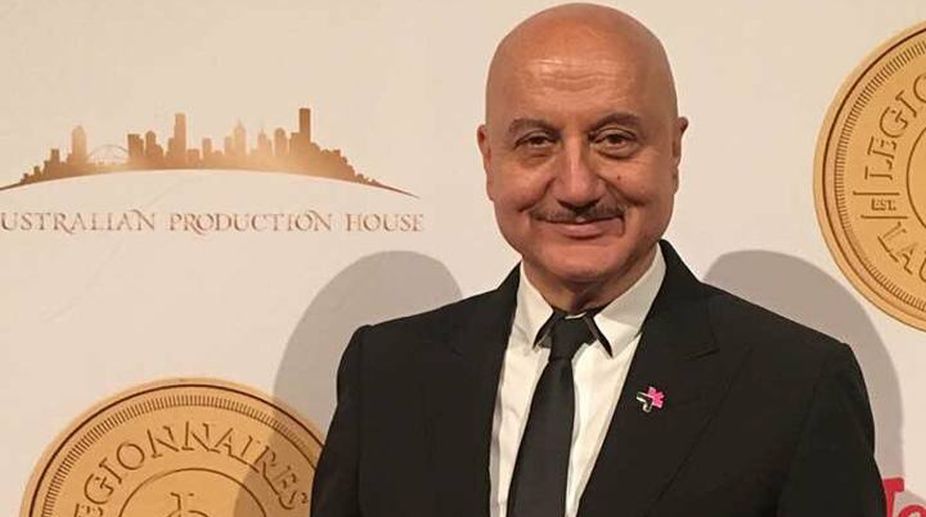Anupam Kher teams up with Prabhas for his 544th film
Anupam Kher teams up with Prabhas for an upcoming film directed by 'Sita Ramam' filmmaker Hanu Raghavapudi. It is backed by Mythri Movie Makers.

Anupam Kher (Photo Credits: Facebook)
A day after Anupam Kher was appointed Chairman of the Film and Television Institute of India (FTII), its students’ association has drawn the veteran actor’s attention to nine key issues persisting in the iconic Pune-based institution.
“Dear sir, while you must be busy accepting congratulatory messages, we would also like to bring to your attention the issues persisting in the iconic institute that you will be heading as Chairman. Also, we are curious to know your take on these issues,” read an open letter from the students’ association.
Advertisement
The letter, signed by Robin Joy and Rohit Kumar, President and General Secretary, respectively, of the Students’ Association, was posted on FTII Wisdom Tree’s Facebook page on Thursday.
Advertisement
They are concerned that FTII, a premier film institute, is now “slowly being turned into an institute that runs short-term crash courses for generation of funds”.
“The new course launched earlier this month, ‘Short Course in Fiction Writing for Television’, has a duration of 20 days. Every student is being charged Rs 20,000, which we find very expensive for such a short-term course and also for students from certain sections of the society.
“A government institute that exists to provide education to students from all section shouldn’t be driven by the agenda of funds generation, which currently seems to be the aim of these courses which has also been the case with government-run institute/universities across then nation,” the letter read.
They said that instead of spending “lavish amount of money” on events such as Open Day and Foundation Day, the administration needs to spend on infrastructure and in buying and repairing equipment which would help them finish their projects on time.
In extension of this issue, the letter drew attention to how “students are being forced to sign undertakings to finish their courses ‘on time’. On the other hand, the administration is not providing the necessary resources which are essential to finish their projects on time.”
Additionally, they have problems with the new syllabus.
“It has its issues like workshops and classes being cut down from the syllabus during the course of the semester arbitrarily, confusion existing even among faculties on the new credit-based system.”
The students also pointed to how “limitations have been brought into exercise norms as part of the new syllabus”.
Citing the norms brought in place for dialogue exercise in third semester, the letter said: “These limitations are logistically not feasible, like the three-day eight-hour shift has been reduced to a two-day twelve-hour shift which would be exhausting and also inhuman to force the lightmen, carpenters, painters and make-up artists and actors to work at such a stretch.”
According to the letter, when students questioned this new change in norm, they were told the norms would remain the same and when it was decided that the students would boycott the exercise, “five students were suspended without any show cause notice”.
The students even said that the lightmen “have been reduced to contractual labour although in the past they used to be permanent employees”.
“The institute runs five-days-a-week. However, there are enough instances when they had worked for six or seven days in a week. In case of the sixth day, at times, the lightmen are not paid currently.”
Besides that, the students have sought more permanent faculties than contractual ones.
“The institute does not have enough number of faculties to run the courses and, because of this, implementation of syllabus is getting affected.”
Also, they said that excluding the student representatives from the Academic Council discussions pertaining to issues such as academics, syllabus, discipline, fee structure, decision about staff members and faculties, is against the constitution of the institute.
The last issue raised in the letter reads: “FTII has been producing filmmakers who are working at various platforms. Some choose not to work in industry and others find alternate ways. But students at various instances have been asked to look at the industry practice where cinema is just being looked at as a commodity and not as an art form which serves the larger human cause.”
Advertisement